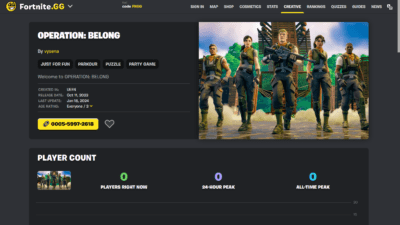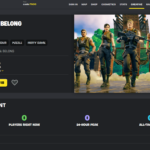New report calls for regulation of military marketing that targets young people
A report published today (27 February 2019) critiques the armed forces’ marketing practice in selling their careers to vulnerable adolescents. This comes in the wake of the Army’s controversial new ‘Snowflake’ recruiting campaign.
Selling the military: A critical analysis of contemporary recruitment marketing in the UK will be launched at an event this evening with Dr Guddi Singh – a paediatric doctor and presenter of a recent TV programme on BBC2 ‘Babies: Their Wonderful World’ – and Rhiannon Spear who, as a young member of the SNP, has campaigned for the age of military recruitment to be raised in the UK.
The report explores how military marketing campaigns exploit developmental vulnerabilities in adolescents and young people, particularly in those that are impacted by social inequality. [3]
It details how the emphasis put on camaraderie and self-development in the British Army’s ‘This is Belonging’ campaign and other recent recruitment advertising misrepresents and masks some of the harder realities of military life. The campaigns also serve to depoliticise the military’s image and promote self-fulfilment in the context of conflict.
The report calls for military marketing campaigns to be evaluated and regulated in line with recent developments in medical understanding of adolescent psychologies, how young people are more vulnerable to sophisticated marketing techniques, and in the context of recent research on the risks associated with military recruitment for young recruits in particular. [4]
It recommends that the interests of the youngest recruits would best be safeguarded by raising the age of recruitment to 18. It also makes recommendations for increasing accountability, transparency and critical awareness around military marketing.
Reem Abu-Hayyeh, from Medact, who contributed to the report said,
“Vulnerable adolescents are being specifically targeted for recruitment to the military, and it is precisely this same group who are at greater risk of worse health outcomes.
“The health and well-being of young people should be prioritised over recruitment figures, and the best way to do this would be by ending the practice of recruiting under-18s once and for all.”
In response to the report, Plaid Cymru MP Liz Saville Roberts said,
“It is unacceptable that the armed forces target vulnerable people as a recruitment strategy. When those vulnerable people are also under the age of 18, such targeted marketing must be called out as a cynical, calculated ploy to manipulate young people’s behaviour.”
Emma Sangster, from ForcesWatch and co-author of the report said,
“We know that young people can be vulnerable to sophisticated marketing strategies and that armed forces marketing plays upon this. For many, the dream they sell is not in line with lived experience.
“Given the unique risks and rigours involved in an armed forces career, it is vital that awareness of the health risks and moral complexity associated with serving in the armed forces is developed so that young people make an informed choice, rather than one driven by persuasive advertising.”
Joe Glenton, a British Army veteran who also works at ForcesWatch said,
“The army is misleading kids into thinking that war is the route to self-fulfilment.”
ENDS
Details of report and launch event
Selling the Military: A critical analysis of contemporary recruitment marketing in the UK by Rhianna Louise and Emma Sangster, published by ForcesWatch and Medact (February 2019)
The report includes contributions from academics, veterans and young people.
Please get in touch for an embargoed copy of the report.
The report will be launched at an event on 27 February at Wesley’s Chapel, London, EC1Y 1AU at 6.30pm with:
- Dr Guddi Singh – a paediatric doctor and presenter of a recent TV programme on BBC2 ‘Babies: Their Wonderful World.’
- Rhiannon Spear – Glasgow Councillor for the SNP and as National Convenor of the youth wing of the SNP led a successful motion to make raising the military recruitment age to 18 SNP party policy.
- Rhianna Louise – ForcesWatch and co-author of the Selling the Military report
- Chaired by Dr Victoria Basham – Cardiff University and Editor-in-Chief of the Critical Military Studies journal.
Notes
1. Medact is a global health charity that uses evidence-based campaigns to support health workers to take action on structural barriers to health equity and justice, in an effort to bring about a world in which everyone can access their human right to health. www.medact.org
2. ForcesWatch is an independent research and campaigning organisation which scrutinises armed forces recruitment practices in the UK and challenges efforts to embed militarist values in civilian society. www.forceswatch.net
3. The report covers:
- Armed forces recruitment marketing strategies, mechanics and key messages, focusing on current recruitment campaigns – This is Belonging 2017-2019, Made in the Royal Navy and No Ordinary Job.
- How the armed forces target adolescents and gatekeepers, particularly from low income households and other vulnerable groups.
- Key concerns including those relating to portraying armed forces life as superior to civilian life and glossing over much of the reality of life in the forces, and how diversity is tokenised and in some cases stereotypes are reinforced.
- How the promotion of self-development in the context of conflict raises ethical concerns.
4. The report assesses military marketing in the context of:
- Adolescence as a developmental ‘window of vulnerability’ that affects individuals’ behaviour, decision-making and response to stress. This is particularly acute for those who have faced adversity in childhood and can have long-term consequences.
- Mental and physical health issues associated with military training, service and young age.
- The vulnerability of adolescents to sophisticated marketing strategies and need for regulation and oversight to ensure young people are making fully informed decisions.
- The development of processes and resources to help public authorities protect the rights and long-term well-being of young people and those who have experienced childhood adversity.
See more: recruitment, recruitment age, risks, terms of service,









